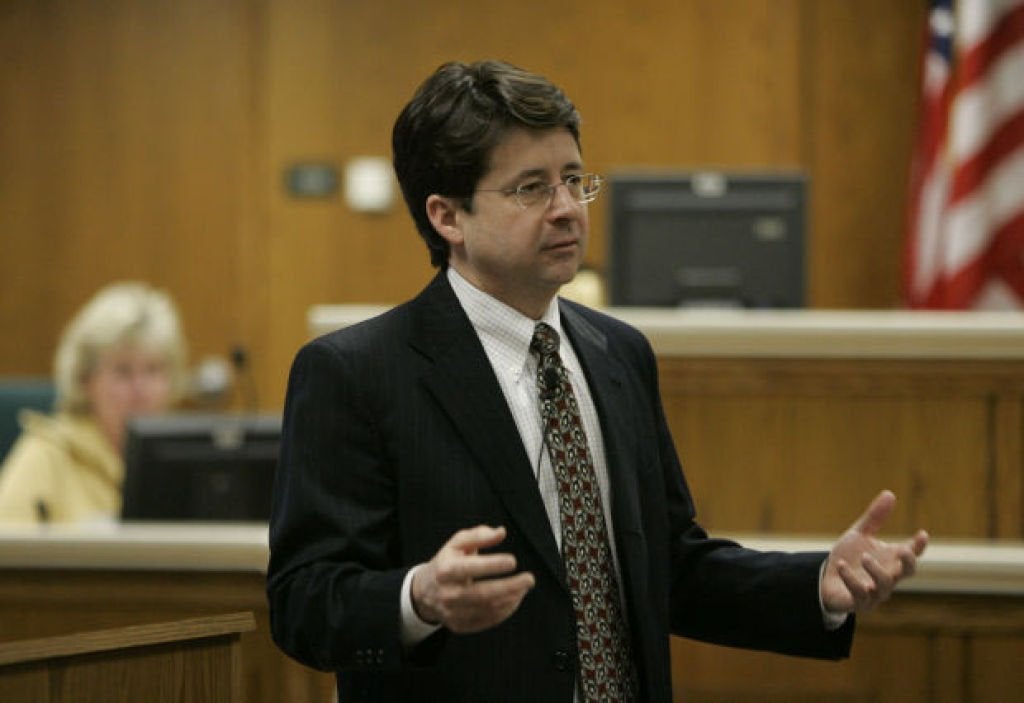The Independent's journalism is supported by our readers. When you purchase through links on our site, we may earn commission.
Making a Murderer: Steven Avery defence lawyer Dean Strang responds to Netflix documentary's critics
'There’s almost never a critical examination of what the police or prosecution has to say'

Your support helps us to tell the story
From reproductive rights to climate change to Big Tech, The Independent is on the ground when the story is developing. Whether it's investigating the financials of Elon Musk's pro-Trump PAC or producing our latest documentary, 'The A Word', which shines a light on the American women fighting for reproductive rights, we know how important it is to parse out the facts from the messaging.
At such a critical moment in US history, we need reporters on the ground. Your donation allows us to keep sending journalists to speak to both sides of the story.
The Independent is trusted by Americans across the entire political spectrum. And unlike many other quality news outlets, we choose not to lock Americans out of our reporting and analysis with paywalls. We believe quality journalism should be available to everyone, paid for by those who can afford it.
Your support makes all the difference.Netflix’s latest series Making a Murderer has stirred up viewers around the world, creating a legion of armchair detectives all looking into the Teresa Halbach murder case.
Steven Avery - the man convicted of Halbach’s murder - is at the centre of the discussion, with many wondering whether he is really guilty or not. However, some viewers believe the filmmakers were trying to prove the convicted killer innocent by not showing numerous pieces of evidence.
Avery’s defendant, Dean Strang, has since defended the Netflix series. In an interview with The Progressive, he explained that the filmmakers didn’t have time to keep everything in.
“The editorial decisions these filmmakers made in taking 200-plus hours of evidence in the Avery case and distilling it to three plus hours on the trial in the film were easily defensible decisions, it seems to me. Not the only decisions you could have made, but easily defensible decisions.”
Strang went on to speak about the media scrutiny the show has since received, drawing comparisons to when newspapers jumped on Ken Kratz’s 2006 statement that condemned Brendan Dassey and Avery before the trial went ahead.
"We live in a country in which every time the police department or a prosecutor wants to issue a press release or hold a press conference, the overwhelming majority of media outlets treat what the police or prosecutors say as received wisdom,” he said.
"There’s almost never a critical examination of what the police or prosecution has to say. Now when one film doesn’t hue to the prosecution line that's where the criticism falls: 'You’re imbalanced, or you’re offering an unbalanced view, or you’re displaying hubris.’”
Referencing a piece recently published by The New Yorker by Kathryn Schulz, he criticised outlets for “parroting” claims without doing the research.
“It reveals, I think, one of the real weaknesses of our media, to be blunt about it. Right down to the level of Schulz simply parroting this claim of Mr. Kratz that sweat DNA was found on the hood latch of Teresa Halbach’s car as if that’s true, and it isn't. There is no such thing as sweat DNA.

Watch Apple TV+ free for 7 days
New subscribers only. £8.99/mo. after free trial. Plan auto-renews until cancelled

Watch Apple TV+ free for 7 days
New subscribers only. £8.99/mo. after free trial. Plan auto-renews until cancelled
“There is DNA that may be transferred in sweat or other bodily fluid potentially, if there’s loose epithelial cells sloughing off in your perspiration, but there was no evidence at trial of sweat. There wasn’t even any testing to establish that there wasn’t blood.”
You can read all the evidence apparently missed from the show here, and check out all the latest news in the Steven Avery case here.
Join our commenting forum
Join thought-provoking conversations, follow other Independent readers and see their replies
Comments